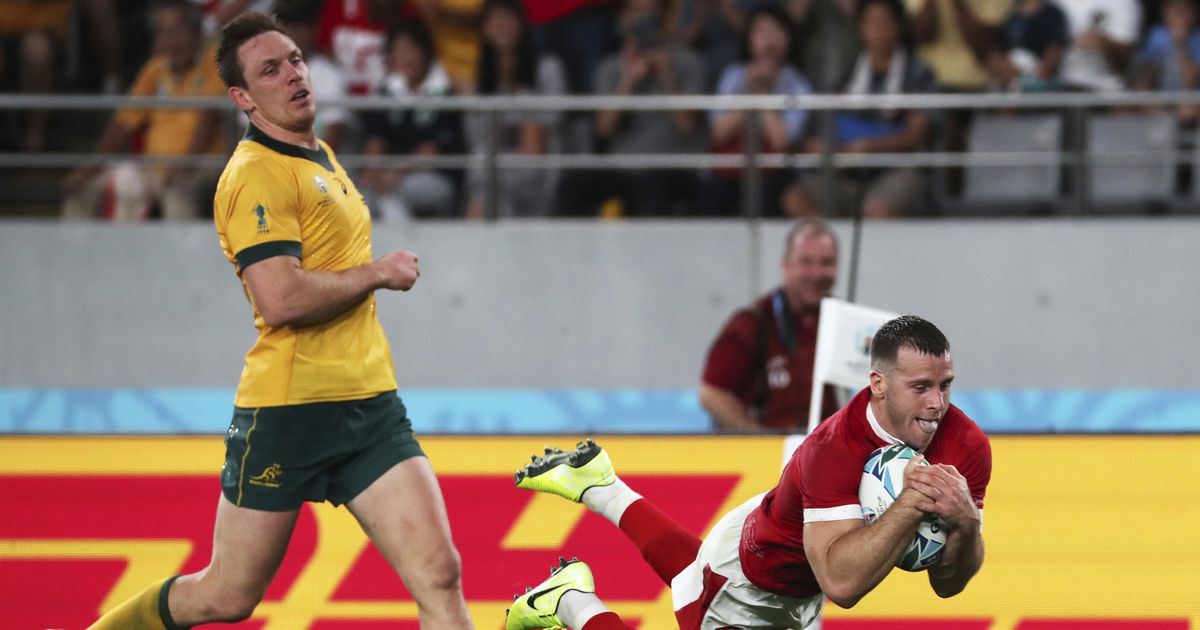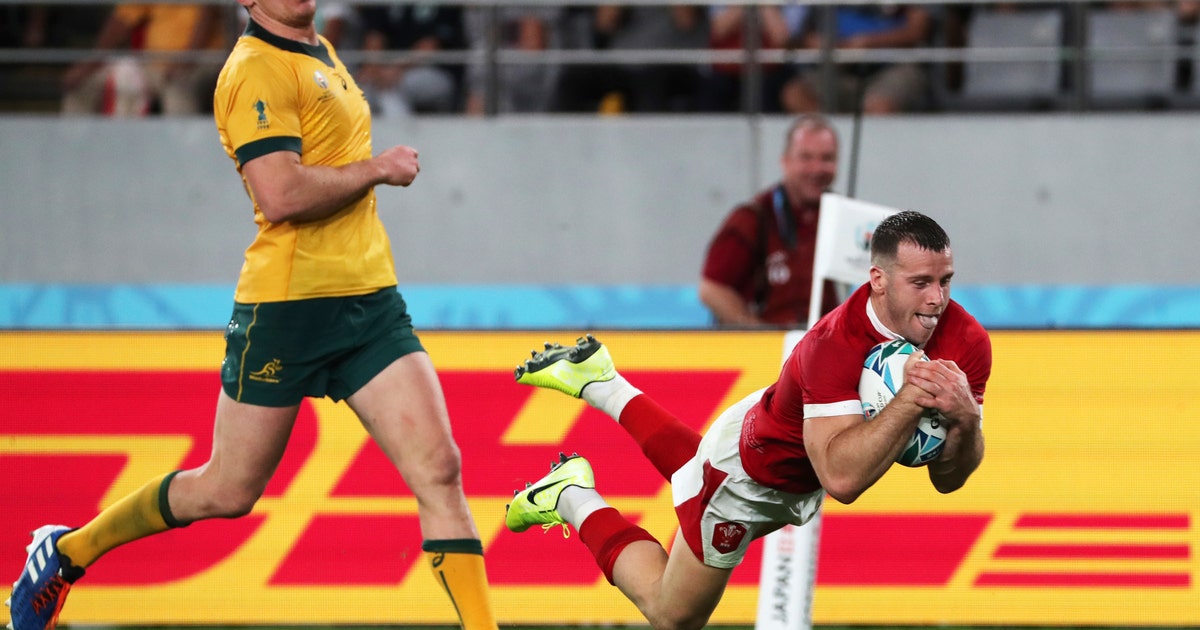Wales edge Wallabies to end 28 years of World Cup misery


TOKYO (AP) — Wales beat Australia in the Rugby World Cup for the first time in 28 years and earned the inside track for winning their pool in a pulsating 29-25 victory on Sunday.
Wales lost five straight World Cup matches to the Wallabies, including a quarterfinal and two pool deciders, but finally ended the streak with a clinical performance.
The Welsh led 26-8 soon after halftime and their fans broke into “How Great Thou Art,” but nobody else at Tokyo Stadium believed the outcome was set, not when these two teams in the past decade have frequently decided their contests in the dying moments.
Add another thriller to their rivalry.
Australia hit back with two converted tries and a penalty to cut Wales’ lead from 18 points to one with 12 minutes to go. Wales replied with a penalty to star replacement flyhalf Rhys Patchell in the 72nd minute. Of course, the Wallabies were far from done.
Several floodlights blew out to add to the drama, but in the faded light the Wallabies bent the Welsh defense but couldn’t break it, and a knock-on at the Welsh 22 finally ended Australia’s sterling comeback with seconds left.
It’s too early to know whether this match determines who wins Pool D, but both teams are expected to advance to the quarterfinals at the expense of Georgia, Fiji, and Uruguay.
Wales, the Six Nations champion, hit the ground running. Wallabies captain Michael Hooper received the kickoff and was mauled over by Wales and Dan Biggar slotted a dropped goal after just 40 seconds. The game was back and forth but not as clean again for another 13 minutes, when Wales used a scrum penalty and an advantage to get position for Biggar to crosskick to the right corner, where center Hadleigh Parkes leaped over Australia winger Marika Koroibete to score.
Biggar converted for 10-0, but Koroibete came firing back with a surge down the left touch line that twisted up the defense for Bernard Foley to crosskick to the right, where Adam Ashley-Cooper took the catch, slipped, and still had time to dive over untouched. The tension caused Wallabies coach Michael Cheika to stand and punch the air.
Koroibete was just warming up. Another break down the left saw him heading for the tryline until Biggar hurled himself at the winger and knocked the ball loose, but the Welsh flyhalf took a match-ending head knock.
Patchell strolled in and had an immediate impact. He kicked two penalties, and put the Australians on notice from referee Romain Poite after he appeared to be hit in the neck by Samu Kerevi, who was harshly judged after his fend hit the chest and slipped up the upright Patchell’s body. The television reviews took several minutes, and the decision left the Australian players confused.
Australia restarted 16-8 down and was stunned by Wales when scrumhalf Gareth Davies, who’d already picked off opposite Will Genia once, came out of nowhere to intercept him again and ran 60 meters to the line.
Patchell’s conversion gave Wales 10 points in two minutes, and a remarkable 23-8 lead at halftime.
Cheika sent in Toomua for Foley, and Nic White soon after for Genia, and the replacements gave the team a pronounced, and more accurate, lift.
But Patchell had a dropped goal in him for 26-8, drawing Welsh fans into song.
The Wallabies started to get on song with Toomua and David Pocock setting up a try for fullback Dane Haylett-Petty, then the forwards going tight and scoring through Hooper from their third consecutive lineout maul.
Toomua converted both and landed a penalty to trail only 26-25, and yet another grandstand finish was on.
But it was Wales which scored next after George North knocked-on while jumping over Kurtley Beale in the in goal. Patchell landed his third penalty goal to give Wales a little breathing room, only for Australia to suck the air out of the stadium with another attack reaching the Wales quarter. But Kerevi lost the ball in contact, and Wales had consecutive wins over Australia for the first time since 1975.
Two-time champion Australia, meanwhile, lost only its third pool game in Rugby World Cup history.






